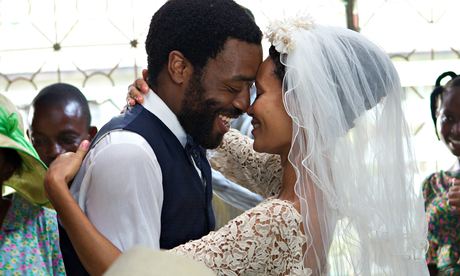
Some of Britain's notable "postcolonial" fiction has translated uneasily into cinema: Monica Ali's Brick Lane and Salman Rushdie's Midnight's Children didn't entirely work as movies. Zadie Smith's White Teeth was adapted, with more success, as a television drama. Now comes the film of Chimamanda Ngozi Adichie's 2006 novel Half of a Yellow Sun, about lives in Nigeria torn apart by the 1960s Biafran war: the attempt to create a secessionist state whose flag showed the top half of a hopeful rising (not setting) sun. Adapted and directed by Biyi Bandele, the film is well intentioned and certainly very well cast: Thandie Newton is the elegant intellectual Olanna and Chiwetel Ejiofor her husband, the conceited, bullish academic Odenigbo. Their tempestuous private lives are made even more tumultuous by the history being made around them. Unfortunately, the film is often stately and sluggish with some very daytime-soapy moments of emotional revelation. At other times, it looks more like a filmed theatrical piece. But there is a heartfelt quality, and it is valuable for being a reminder of a piece of history that once, almost like Suez, dominated every dinner-table discussion among London's political classes, and showed how Britain's post-imperial legacy was pretty toxic. The fiction is interspersed with real TV news clips of the time from Michael Nicholson and a young Frederick Forsyth.

